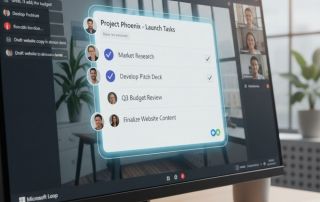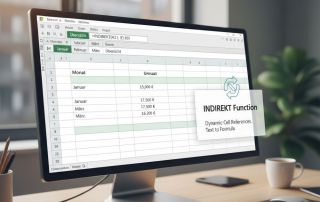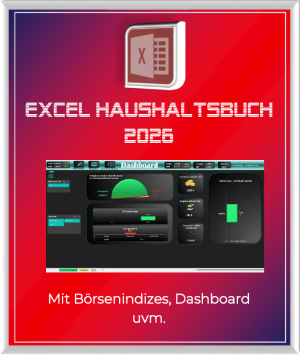From “Googling” to knowledge: How GenAI is revolutionizing your research
We’ve all experienced the “browser tab madness.” You’re researching for a new project, looking for market trends, or comparing software. An hour later, you have 25 tabs open, are clicking away cookie banners in frustration, and are painstakingly trying to extract the relevant information from walls of SEO-optimized text.
That was yesterday!
With Generative AI (GenAI), we’re currently experiencing the biggest shift in information gathering since the invention of the search engine. We’re moving away from searching and toward finding and synthesizing.
Learn how to use GenAI to cut your research time in half and gain deeper insights in our article.

The difference: search engine and answer engine
Traditional search engines (like Google) are signposts. They tell you, “The answer might be here, go read it there.” GenAI tools (like Perplexity, ChatGPT Search, or Gemini) are analysts. They say, “I’ve read these five sources, and here’s the summary of the answer for you.” This saves you the cognitive effort of piecing information together yourself.
Three concrete use cases for your office
What does this look like in practice? Here are three scenarios where AI outperforms traditional search:
A. The quick market overview (spreadsheet power)
Do you need to compare different CRM systems?
- Alt: Open the providers’ websites, search for pricing pages, and manually transfer features to Excel.
- New (Prompt): “Compare Salesforce, HubSpot, and Pipedrive for a small service company (10 employees). Create a table with the columns: Cost per user, Key benefits, Biggest drawbacks, and Integrations.” The result is an almost complete decision matrix in seconds.
B. The “Deep Dive” into Specialist Topics
Do you need to delve into a complex topic (e.g., ESG guidelines)?
- Old: Read technical articles that often assume too much prior knowledge.
- New (Prompt): “Explain the new ESG reporting requirements for SMEs. Start with a summary for laypeople and then go into detail about the points that are relevant for the IT department.” You can ask follow-up questions (“What does this mean specifically for server hosting?”) as if you were chatting with an expert.
C. Document Research (“Chat with your Data”)
Often, the information isn’t on the web, but in a 100-page PDF study. Upload the PDF to your AI tool.
- Prompt: Summarize the key findings of this study on one page and list all the mentioned statistics on the topic of working from home. The AI will become your personal reading assistant.
The tools: Where should you start?
Not every tool excels at everything. Here’s your current setup:
- Perplexity AI: The current gold standard for research. It works like a mix of Google and ChatGPT. It always delivers precise footnotes and source information. Perfect for fact-checking.
- ChatGPT (with Search) / Gemini: The all-rounders. Strong in writing and creativity, but now rapidly catching up in web search.
- Consensus (for academics): An AI search engine that exclusively searches scientific papers. Ideal if you need reliable studies instead of opinions.
The golden rule: Trust is good, verification is essential.
GenAI has a weakness: It wants to please you. If it can’t find an answer, it sometimes invents one (hallucination).
Therefore, the “sandwich process” applies to professional research:
- Human: Defines the question and the context.
- AI: Gathers information, summarizes, and structures it.
- Human: Checks the sources! (Click on the small numbers/links in the AI output.)
Never use GenAI for facts that you publish without verification, but always use it to bring structure to the chaos of the internet.
Comparison: Classic search vs. GenAI research
| criterion | Classic search engine (e.g., Google) | GenAI research (e.g. Perplexity, ChatGPT) |
|---|---|---|
| input | Keywords (e.g., “CRM comparison for medium-sized businesses”) | Complete sentences & context (e.g., “Create a table of advantages and disadvantages of…”) |
| Result | A list of links (“10 blue links”) that you have to click through. | A direct, synthesized answer, summary, or table. |
| Your task | Search for, read, filter and reassemble information independently. | Review the result, refine it, and check the facts. |
| Time required | High (many tabs, lots of reading). | Low (quick overview). |
| Sources | You are directly on the original source. | The AI summarizes (risk of hallucinations → source check necessary!). |
| Perfect for | Navigation (finding the website), shopping, current news, basic facts. | Understanding complex topics, comparisons, summaries, brainstorming. |
Conclusion: Upgrade to Knowledge Worker 2.0
Anyone still conducting research solely by manually clicking through search results is working in slow motion. With GenAI, you outsource the “searching and sorting” and focus on “understanding and deciding.”
Try it with your next project: Instead of opening Google, launch your chatbot. You’ll wonder how you ever did it differently.
Beliebte Beiträge
Warum dein Excel-Kurs Zeitverschwendung ist – was du wirklich lernen solltest!
Hand aufs Herz: Wann hast du zuletzt eine komplexe Excel-Formel ohne Googeln getippt? Eben. KI schreibt heute den Code für dich. Erfahre, warum klassische Excel-Trainings veraltet sind und welche 3 modernen Skills deinen Marktwert im Büro jetzt massiv steigern.
Microsoft Loop in Teams: The revolution of your notes?
What exactly are these Loop components in Microsoft Teams? We'll show you how these "living mini-documents" can accelerate your teamwork. From dynamic agendas to shared, real-time checklists – discover practical use cases for your everyday work.
Career booster 2026: These Microsoft Office skills will take you further!
A new year, new career opportunities! But which Office skills will really be in demand in 2026? "Skilled use" is no longer enough. We'll show you today's must-haves – like advanced Excel, using AI in the office, and relevant certifications for your resume.
Excel Tutorial: How to quickly and safely remove duplicates
Duplicate entries in your Excel lists? This distorts your data. Our tutorial shows you, using a practical example, how to clean up your data in seconds with the "Remove Duplicates" function – whether you want to delete identical rows or just values in a column.
Dynamic ranges in Excel: OFFSET function
The OFFSET function in Excel creates a flexible reference. Instead of fixing =SUM(B5:B7), the function finds the range itself, e.g., for the "last 3 months". Ideal for dynamic charts or dashboards that grow automatically.
Mastering the INDIRECT function in Excel
The INDIRECT function in Excel converts text into a real reference. Instead of manually typing =January!E10, use =INDIRECT(A2 & "!E10"), where A2 contains 'January'. This allows you to easily create dynamic summaries for multiple worksheets.

































